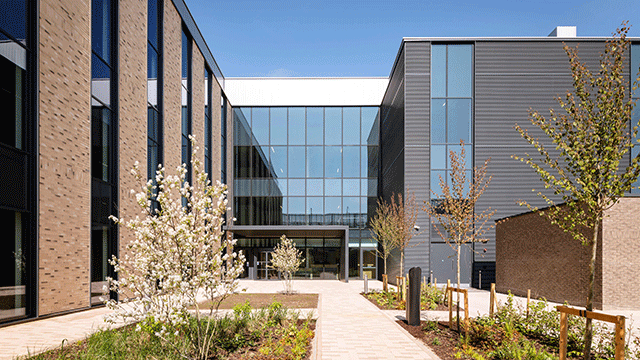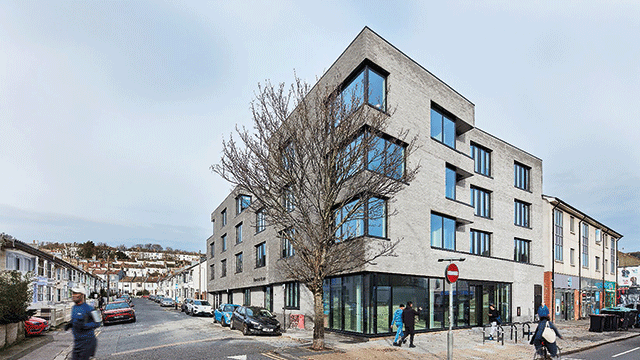It was the best of times, it was the worst of times. For Jersey, it is not A Tale of Two Cities, but rather one of how the world’s problems have intruded on the Channel Island’s harmonious life.
The best of times for the island, governed by the States of Jersey, lies in its financial attractions. No capital gains tax, no inheritance tax, no death duty, income tax set at 20%, and tax exemption for certain international companies, make it a financial Mecca that has enticed more than 70 of the world’s top banks to establish operations.
Job losses
The worst of times comes from the EU’s bid to crack down on tax havens, and the economic slowdown that has seen financial institutions cancel plans to expand, close offices and, in some cases, leave the island altogether.
Job losses have followed. Earlier this month, Standard Chartered Grindlays Bank announced 83 redundancies. Last month stockbroker Collins Stewart was reported in the Jersey Evening Post as saying the island is moving into a “vicious downward economic spiral”.
Jersey’s commercial property market has consequently been affected. Rents for grade A office space have been static at around £25 per sq ft since 2001, and there is limited new-build.
Julian Mallinson of local agent William A Bull says that office availability, at around 200,000 sq ft of which 140,000 sq ft is prime is at its highest for a decade. Meanwhile take-up so far this year has been slow and landlords are offering more incentives.
Agents point out that deals are being done in the 4,000 sq ft range, but that the failure to let two new office buildings the 32,000 sq ft Casa Meltia and 35,500 sq ft Charter Place shows that companies do not want headquarter buildings at the moment.
Speaking about Charter Place, completed four months ago, Leslie Baker of Baker Almond, says negotiations, which have failed, have been affected by the economic downturn. Baker, whose company owns 50% of Jersey-based Coolwater Developments, adds that he is surprised the building has not been let. “In Jersey, if an office building was up, it was let,” he says.
It is easy to understand how the slowing economy has affected the island. What is more difficult to gauge is the affect of the crackdown on tax havens by the EU and the Organisation for Economic Co-operation and Development.
Blacklisted
The OECD included Jersey and neighbouring Guernsey in its June 2000 list of 35 jurisdictions which it claimed met the criteria for being tax havens. It said the islands faced the possibility of being blacklisted unless they incorporated more transparency into their tax dealings.
In February last year, Jersey and Guernsey said they were committed to improving transparency of tax and regulatory systems, and establishing effective exchange of information with OECD countries by 2005.
But the OECD’s demand sent jitters into some occupiers, and frightened investors. In fact, such was the initial worry that Bill Sarre of CB Richard Ellis says he had an investor pull out of deals after reading newspaper reports expressing concern about what was going to happen to Jersey’s financial industry.
Many on the island now believe that any negative speculation will settle down following the state’s agreement to work with the OECD.
“This is not a major thing,” says Michael Lombardi, partner with law firm Ogier & Le Masurier, which is advising the states on negotiations with the OECD. And islanders point to a strong investment market, particularly from locals.
But there is still speculation over what will happen to the tax system.
New taxes
Sarre believes the island will have to go though a change in its taxation arrangements for local and international companies. “We may have to go to 0% income tax and introduce other taxes to raise money,” he says. No-one knows what affect that could have on firms either already established on the island or considering locating there.
Paul Le Marquand of law firm Maurant says private investors, who have more to lose, could be affected significantly.
At the moment, however, commentators are waiting to see how Jersey’s politicians and civil servants work out the details. The controller of the States of Jersey Income Tax Department, Malcolm Campbell, says: “There’s a fiscal strategy in progress but no decision has been made on what will happen.”
Despite the anxieties and the economic slowdown, developments are still going up, albeit mixed-use schemes.
The St Helier Waterfront, promoted by the States of Jersey-owned Waterfront Enterprise Board, is moving forward. A leisure element that includes a 35,000 sq ft, 10-screen multiplex, let to Cine UK, a 12,000 sq ft nightclub, a 10,000 sq ft Chicago Rock Café and a water park are all open and trading. Several residential units have been built, and a £40m, 241-room Marriott International Hotel is under construction.
Also under way is the £44m Island Site development, which will link St Helier town centre to the Waterfront project. As well as a hotel, the 243,000 sq ft site, also known as Liberation Place, will house a new tourism office, bars and restaurants. The nominated developer, Coolwater, will work in partnership with the Waterfront Enterprise Board in Jersey. The scheme is due to be completed by summer 2005.
Even the news of redundancies is not seen as an altogether bad sign. Richard Barnes, chairman of Barnes & Partners, says a shortage of labour on the island meant wages were rising astronomically, and staff poaching was rife.
“Jersey needs to slow down a bit,” he says. “With the banks moving offshore, you have now got a supply of labour, so the market is quite healthy. “Sarre concludes: “Because of the world economy, Jersey is experiencing a slowdown, but it has to be put into proportion. Look at London. We are still not as bad as that.”
|
Retail round-up: Record rent boosts market |
|
While the island’s office sector slows, Jersey’s retail market is going quietly about its business. A record rent was set last year when Clinton Cards took a unit on King Street, St Helier’s main retail patch, for £145 per sq ft zone A (on 30ft zones). |
|
Rent reviews for Woolworths and JD Sports also were quoted at more than £140 per sq ft.Similar to other small town and city centres, Jersey suffers from a lack of large units. Such is the demand for space that according to Ben Ludlam, director at Broadlands Estates: “Units that have become available close to the pedestrian areas have been snapped up.” There are no vacant units at present. |
|
Lack of space is not the only factor restricting retailers, however. A UK multiple has to gain a license to trade from the States of Jersey. Until recently, this meant the business had to be either run by a local or have an association with locals. But that is changing. |
|
“The States of Jersey has realised that if the high street is going to have a good mix of local and non-local retailers, it needs to be more flexible to the UK multiples,” says Ludlam. |
|
He adds that there is now the view that all applicants are considered, whatever their links to the island. “The diktat is to help them. It’s a change in how the wording is applied, not necessarily a change in law,” says Ludlam.As a result, Crabtree & Evelyn and Mango are set to open, having snapped up precious units in the island’s high streets. |










